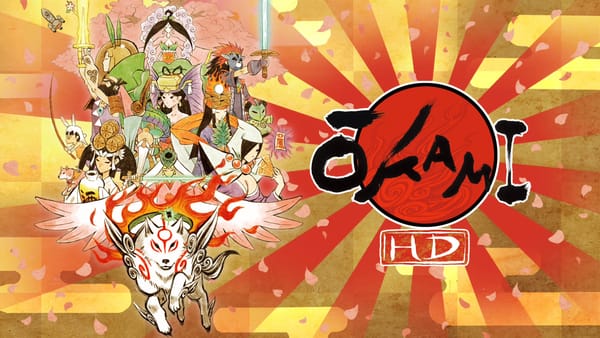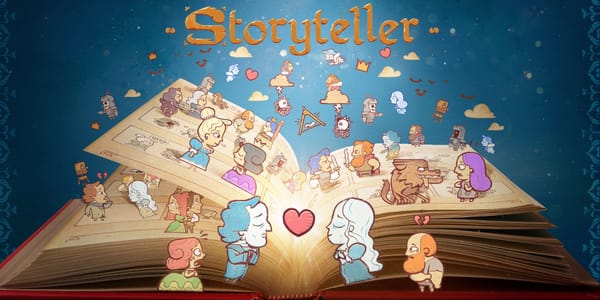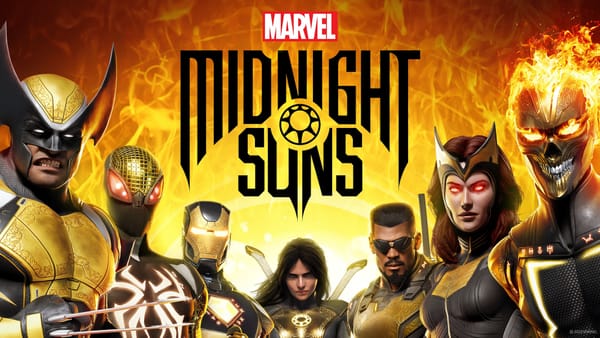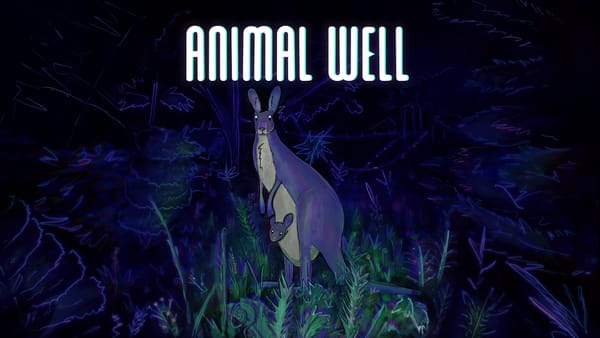Tears of the Kingdom and the eras of a life
Marking time with Zelda
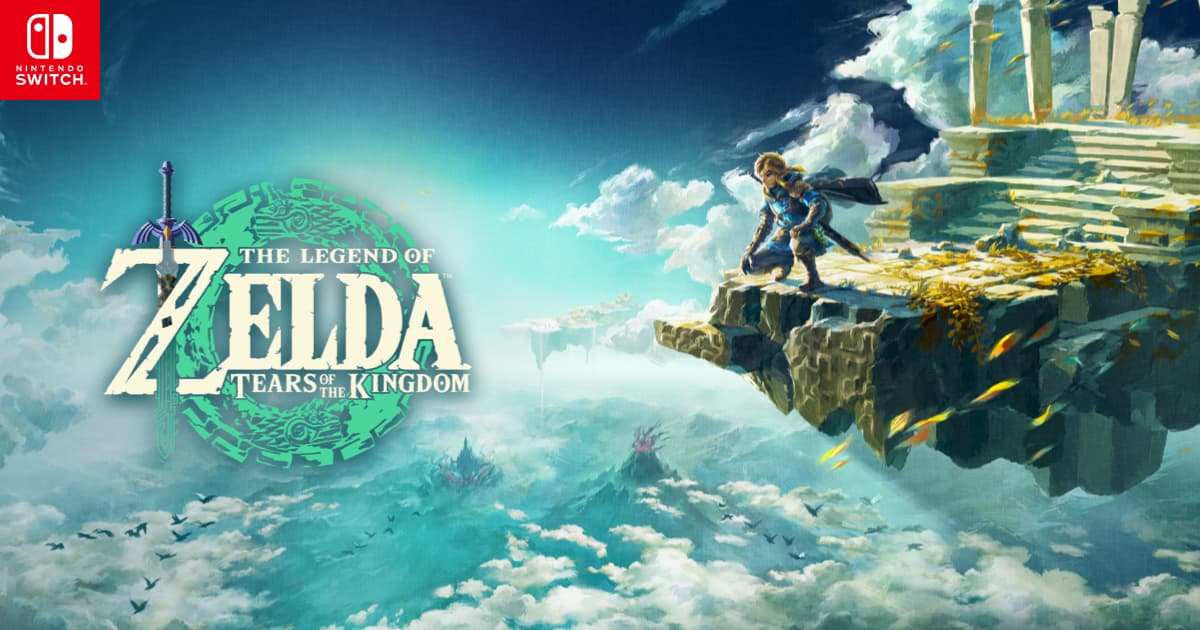
Is it possible to feel disappointed by a sequel that improves on everything present in its predecessor?
This was one of my first feelings playing The Legend of Zelda: Tears of the Kingdom, which is by all accounts a tremendous achievement: an inventive, strange, and massive title from Nintendo that takes what worked about 2017’s Breath of the Wild and supercharges it. An open world built on the joy of exploration rather than a map full of quest markers? What if that game now let you explore above and below that same world? 120 shrines, each with their own bespoke puzzle or combat scenario? Make it 152 this time, and cut all the boring “fight one enemy” shrines. Four central abilities that kind-of, sort-of felt like items from Zeldas past? Fuck it, you can build a car now. You can go through ceilings. Have fun. Move fast, break things.
I did everything there was to do in Breath of the Wild when it launched in 2017,1 putting more than 100 hours into the game and its DLC. It helped that I was a grad student at the time, finishing my thesis when the Switch appeared on my doorstep. The Switch launch was the first time my then-girlfriend-now-wife would see me transmogrify into what we refer to as “Christmas Day Grayson,” a chaotic, manic being who can, and will, wake up at 4 AM the day a new console or piece of technology is set to arrive, even if said item will not, of course, be delivered at 4 AM, and really not until the afternoon. My personal attachment to Nintendo has always been more about Zelda than it is about Mario, so the fact that the Switch launched alongside a complete reinvention of the Zelda franchise was like three Christmases rolled into one.2
By contrast, when Tears of the Kingdom released, I waited a week to start playing it, because we were in the middle of a move, and I didn’t have the time or, frankly, the energy to start such a massive experience. There were boxes to unpack. Screen doors to install. A Budget Truck to return. A new mailbox that needed setting. Link and whatever was going on with his new glowy arm would have to wait.
You can mark your life by Zeldas. My first was Link’s Awakening, which still occupies a part of my brain that can only be excised by essay writing. The first 3D Zelda I played was Majora’s Mask, one of several loose cartridges my father brought home in a shoebox alongside a well-worn Nintendo 64 he got from a pawn shop on his delivery route—my first home console. Having never played Ocarina of Time, I couldn’t figure out Termina and all its intricacies, and quickly put it down. Then, Wind Waker arrived and became one of my favorite games of all time. I had no allegiance to the “realistic” graphics of Zeldas past. I loved this new look, this new vibe, this new adventure. I was twelve, and I was enamored. I played every Zelda after that. Twilight Princess. Skyward Sword. Spirit Tracks, too. A Nintendo property had grafted onto my personality like the Crest of Courage to the back of Link’s hand. I’d buy every console of theirs in perpetuity, including the Wii U, just for the chance to return to Hyrule.
Tears of the Kingdom deserves the praise heaped upon it, but a nagging feeling of disappointment clouded my early hours with it. As I dove from the tutorial area in the sky onto Hyrule proper, I couldn’t shake the sense that I’d done this before. I knew this world, despite its changes. I quickly returned to the old routine: seek a shrine, activate a tower, drift toward a dungeon. The routine felt rote. Why should this be a problem, though? Hadn’t I played countless Zeldas before Breath of the Wild, each of them guilty of retreading mechanics and ideas? Hadn’t I happily played both Phantom Hourglass and Spirit Tracks? Why now, with a sequel as generous as Tears of the Kingdom, did I suddenly feel like a weary traveler on a well-worn path, bemoaning a game that was more instead of new?
To be fair, that feeling did dissipate toward the latter portions of the game, where some unexpected (and somehow unspoiled) elements took me gleefully by surprise. In particular, though heavily foreshadowed, a new ally caused me to rethink my entire approach to exploring the Depths in a way I didn’t expect more than 50 hours into the experience. Even so, I felt myself pushing to complete the game rather than luxuriating in it. Gone was my 2017 feeling that I ought to see everything the world had to offer. When the credits rolled, I realized I had unintentionally done exactly half of the shrines available to me. The number felt too neat, too metaphorical.
The question, I suppose, was whether the glass was half full or half empty. I can answer that: half full. Tears of the Kingdom has its faults. The Depths, as spooky as they are, aren’t nearly as engrossing to explore as the surface or sky. The main dungeons vary in quality, with the Zora once again taking home the “Worst Dungeon by Far” trophy. The game also struggles performance-wise, especially on my wheezing, launch-day Switch. But none of those drawbacks hold a candle to what the game gets right. Its bonkers building system is far more approachable than I initially thought. Its weapon fusing took the tedium of weapon degradation from Breath of the Wild and made it into something thematic and mechanically fun.3 Its soundtrack and ambient music are total triumphs once again, framing every moment just so. When I look back on it, I liked or outright loved so much of Tears of the Kingdom that I struggled to say what I found disappointing about it. What was this strange feeling that something wasn’t quite right?
That solved it: It wasn’t disappointment. It was nostalgia.
You can mark your life by Zeldas. Breath of the Wild found me at my most boundless: completing a master’s degree, living in a town where I could afford a one bedroom apartment by teaching two classes per semester, enjoying that golden era of one’s late twenties when things are pleasantly in flux. Then, I graduated. I got married. I moved and got a new job, then got a new job and moved, then got another new job and moved, then moved again for good measure.4 Somewhere during all that I started writing Backlog, then a little for Polygon. Also during that stretch, I got a dog that became my entire personality.
Now, Tears of the Kingdom is out, and life is more complex. Life is better, mind you, but undoubtedly less simple. I have a mortgage. I work full-time and write part-time. My student loans, zombie-like, are beginning to rise from their graves and reclaim their parasitic relation to my bank account. That whole “stay in your house for a year and a half” thing happened and kind of did a number on me, as I’m sure it did for others. So much has changed, and with that comes a nostalgic wish for a return to simplicity. A wish for the familiar. A wish not only to return to Hyrule, but to return as I once was. A wish, in a sense, to travel through time.
I’m saving the rest of Tears of the Kingdom for a different Grayson. One who didn’t just move. Who isn’t as overwhelmed. Who maybe isn’t working on a book. Something I’ve learned in these intervening years is that you can’t force something to be that isn’t ready to be. Everything needs time. So what’s left to see of Tears of the Kingdom, I’ll save for another day. Another year. Like a crucial character decision in Tears of the Kingdom, I’ll give it the time it needs.
I suspect, as an experience, Tears of the Kingdom will only gain power in the interim, because no one has managed to top Breath of the Wild to this day.
No one, that is, but Nintendo.
Okay, fine, I didn’t get all the Korok Seeds, because life is short, and being given a golden poop didn’t rank high on my bucket list. ↩
The fact that Jade still married me after watching me become such a techno-gremlin is a testament to the power of love. ↩
My (tears of the) kingdom for the ability to fuse weapons in-menu, though. ↩
I’m incredibly, incredibly tired of moving. ↩


